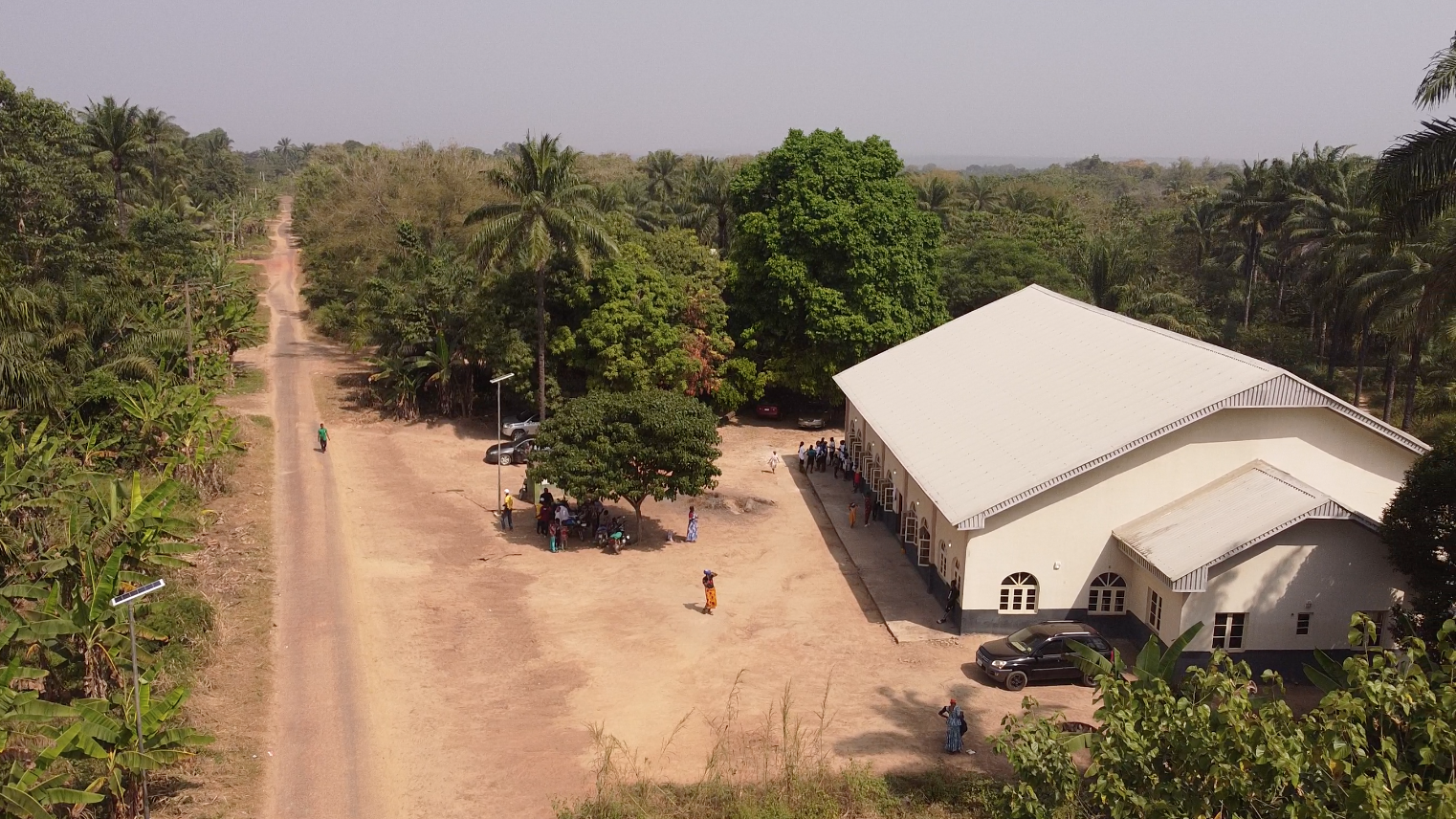Nigeria News
UDABURU: A walk through the land of the sage

As I embarked on a journey through the roads of Ehaje 2, my destination awaited – Udaburu, a community nestled between the towering ‘villages’ of Itabono (Obenjira and Ai-Ede Efewu), Ekere, Ejule, and Ugbugbu. Known for its historical significance and as a city of many firsts, Udaburu held the charm of a place shaped by centuries of tradition.
The name Udaburu echoed through the ages, with no accurate meaning attached to it. Some believed it was borrowed from a neighboring community in Ebonyi State, while others speculated that it was derived from the three elements that defined the community – Udaburu, Adepe and Igidogbe. Regardless of its origin, Udaburu proudly identified itself as the land of the sage.
Founded many centuries ago, Udaburu was a pioneer in infrastructure development. It proudly claimed the title of being the first in Ehaje 2 to have a tarred road and to be illuminated by electricity. As I traversed the streets, it became evident that the community stood as a testament to progress and resilience.
Situated at the heart of Ehaje ward 11, Udaburu served as the headquarters of the political ward, with its residents affectionately calling it ‘Ogo.’ However, before settling in its present location, the community’s roots could be traced to Ojinale, a now-farm settlement close to Ejule. The population grew, leading to the founding of other villages such as Olediro, Umufu, Odobe, Ubafu, Atamaka, and Ugbugbu Centre.
Decades ago, the late Adikwu Ojiji, a renowned farmer and family man, moved from Ojinale to Isu, laying the foundation for Udaburu’s current location. Over the years, Udaburu had become a breeding ground for prominent sons and daughters, including Bar. Agada Apochi of Unified Payments, Comrade Apeh Boniface of DPR, and Dr. Austine Ameh.

Late Simon Godwin Idoko
Bar Boniface Agada Apochi, a distinguished son of Udaburu, has recently unveiled a cutting-edge, multi-million naira ultra-modern hospital in Ukwo Owukpa. This grand endeavor stands as a tribute to his late father, Chief Emmanuel Apochi, the esteemed Onagene of Ai-Amuche. The state-of-the-art facility is poised to serve as a beacon of healthcare excellence, benefitting not only Udaburu but the wider community of Ukwo Owukpa.
This philanthropic venture follows Bar Boniface Agada Apochi’s earlier collaborative effort with Boniface Apeh, his namesake, in bringing electricity to the Udaburu community.

Bar Boniface Apochi
Udaburu stands as a bastion of cultural richness, firmly grounded in its traditions. Renowned as the home of vibrant and popular traditional dances, the likes of Alanya, Ogrinya, and Ode grace the community’s cultural landscape.
Udaburu’s landscape was not only shaped by human achievements but also by the mystical elements that once governed the land. The deities Onyikpechi and Idim were once revered, believed to protect the residents against enemies and wild animals. Omonu Odo and Amedu Ura served as the custodians of these deities until the passing of Attah ‘Umure’ Ameh marked the end of the Onyikpechi era.
With the passing of the era of deities, a spiritual transformation embraced Udaburu, and the echoes of Christianity resounded through the once sacred land. The community’s religious landscape evolved, embracing a diverse tapestry of faiths that now colored its spiritual horizon.

Late Comr. Apeh U Boniface
Prominent clerics emerged as spiritual guides for Udaburu, shaping the hearts and minds of its residents. Dr. Austin and Pastor Paul Ameh, Evang Okpe Amedu, Elder Abel Ojor, Evang Ben Ameh, and others stood as pillars of strength, leading the community towards a new era of faith.
The religious diversity in Udaburu was evident in the variety of churches that dotted the landscape. The Catholic Church, with its timeless traditions and rituals, stood side by side with the vibrant and spirited Assemblies of the Lord’s Called Ones (Ugbolojo). The melodious hymns of the Methodist Church harmonized with the fervent prayers of the Assemblies of God congregation.
Each church in Udaburu became a spiritual haven, a place where the community came together to seek solace, guidance, and communal worship. The transition from ancient beliefs to Christianity was not just a change in faith but a journey of self-discovery and unity.
Amidst the rich tapestry of Udaburu’s history, sports played a crucial role, with the community boasting a football club known as the Super Hawks. This club had etched its name in local lore, having clinched victories in numerous competitions both at home and away.
 As I wandered through Udaburu, I encountered families whose names resonated through the ages – the Apochis, the Ogiras, the Ojijis, the Apehs, the Ayegbas, the Ameh Ekeres, the Agbochinis, and many more. These families were not just inhabitants; they were the custodians of Udaburu’s legacy, passing down stories from one generation to the next.
As I wandered through Udaburu, I encountered families whose names resonated through the ages – the Apochis, the Ogiras, the Ojijis, the Apehs, the Ayegbas, the Ameh Ekeres, the Agbochinis, and many more. These families were not just inhabitants; they were the custodians of Udaburu’s legacy, passing down stories from one generation to the next.
Udaburu, with its blend of tradition and progress, stood as a testament to the resilience of a community that had weathered the sands of time, leaving an indelible mark on the map of Ehaje 2. As the sun set over the city, casting a warm glow on the landscape, Udaburu whispered its tales, inviting all who listened to become a part of its living history.












